7 Keys to Traveling Without Fear Despite Terror Attacks
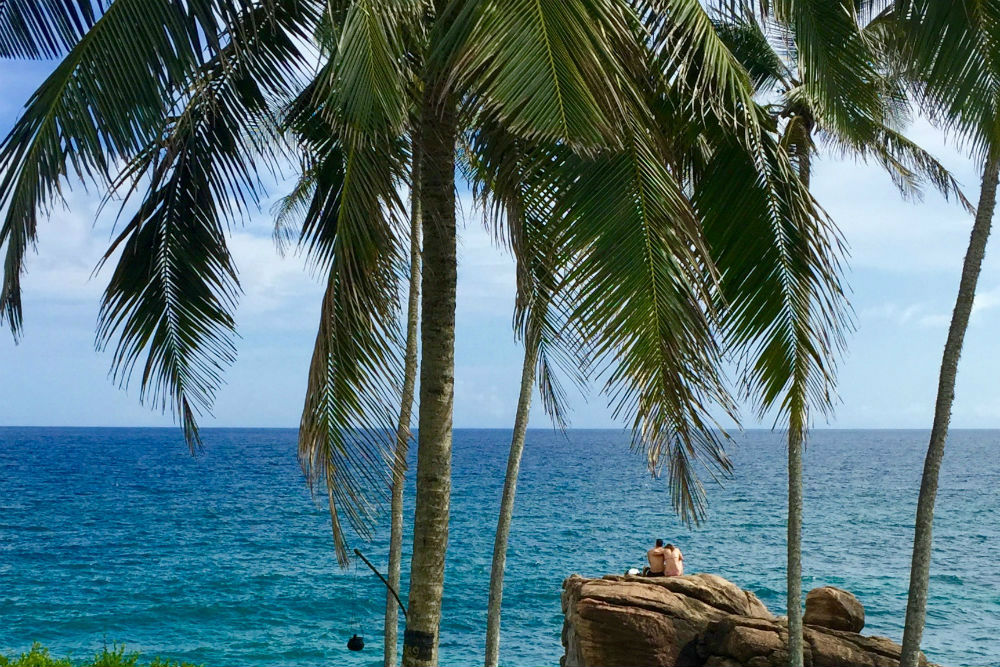 The Sri Lanka hotel where Wendy and her family stayed two years ago. Photo: Tim Baker
The Sri Lanka hotel where Wendy and her family stayed two years ago. Photo: Tim Baker The past few years have underscored that we’re living in a world where anything can happen anywhere at any time—at hotels in Sri Lanka on Easter Sunday, at a country music festival in Las Vegas, on a bridge in London, at a celebration on the French Riviera, at a Christmas market in Berlin, in a theater in Paris, at the airport in Istanbul, at a shrine in Bangkok, in a hotel in Mumbai, at a nightclub in Orlando, at a marathon in Boston, in a skyscraper in Manhattan….
The answer is not to stop traveling, or to avoid huge swaths of the globe out of a misperception that your risk is greater there than anyplace else. The answer is to keep traveling, to make friends around the world, and to be a thoughtful ambassador for your country.
Of course, while your head may agree with me, your gut may be apprehensive. You may be making travel plans—or trying to—and you can’t help but wonder: If I go, what is the risk that I will get caught in a terror incident? How do I minimize that risk? If I can’t minimize it, how do I get over my fear?
I believe the solution is to put your risk in perspective. Here’s how:
1. Grasp how minuscule the statistical probability is of getting caught in a terror attack abroad.
According to the U.S. State Department, the number of U.S. citizens killed overseas by incidents of terrorism from 2001 to 2014 was 369; compare that number with the 3,043 killed inside the U.S. by terrorism during the same period. In terms of street crime and gun violence, most of the U.S. cities we live in are statistically more dangerous than the places we visit abroad. Your risk of being killed in a car crash (one in 19,000), drowning in your bathtub (one in 800,000), or being killed by lightning (one in 10 million) far exceed your risk of dying from terrorism (one in 20 million).
2. Don’t confuse the probability of a terrorist attack with the probability of becoming the victim of a terrorist attack.
Is it virtually certain that there will be another terrorist attack in Europe in the next 12 months? Yes. Does that translate into a high degree of risk for the individual traveler to Europe? No.
3. Know where the real dangers lie.
When planning a vacation, we tend to worry more about spectacular risks—whether a terrorist attack or an epidemic of norovirus on a cruise ship—than about boring risks like, say, overexposure to the sun, even though one in five Americans will develop skin cancer in the course of a lifetime. Remember that the single biggest cause of death for Americans traveling overseas is motor vehicle accidents. (Terrorism is #7, after incidents such as suicide and drowning.)
4. Understand the reasons why your fear of a terrorist attack is out of proportion to the risk.
There are psychological reasons why we are more afraid of terrorist attacks than logic would dictate. We’re more afraid of risks that are new and unfamiliar than of those we’ve lived with for a long time (e.g., heart disease, which accounts for one in every four deaths in America each year). We’re more afraid of risks that kill us in particularly gruesome ways—say, a plane crash, a shark attack, or the Ebola virus—than in mundane ways. We’re less afraid of risks we feel we have some control over, such as skiing and driving, even if it’s only the illusion of control. (Most people think their driving is safer than it actually is. We’re all one text message away from death on the road.) We’re more afraid of human-made dangers than of those with natural causes, such as solar radiation or earthquakes. We’re more afraid of risks that are highly publicized, especially on television, and those that involve spectacular events. One incident with multiple deaths has a much greater impact than many incidents each involving a single death. That is one reason why we fear plane crashes more than car crashes (even though the latter are far more likely).
5. Don’t focus so much on unlikely risks that you ignore common risks that are far more likely to hurt you.
Frightened people make dangerous choices. As an example, after 9-11, people chose to drive rather than to fly. As another example, cruisegoers may be so focused on washing their hands frequently in order to avoid norovirus that they forget to reapply their sunscreen. Or, here’s a personal example: When I was in Istanbul shortly after 9-11, I opted for a small, locally owned hotel in a quiet part of town far from the U.S. Consulate. I figured a Western chain near the main square, or a hotel next to the Consulate, was more likely to be a terrorist target. But every night I kept having to hail a taxi to that small hotel, and the drivers kept getting lost en route–one even got a flat tire and left me on the side of the road—and it was dark on that inconspicuous street in a quiet part of town. My point is: The miles it took to reach my hotel every night raised my risk more than the likelihood of a terrorist attack at a Western chain near the Consulate would have.
6. Appreciate that what’s bothering you is not risk itself but your uncertainty as to the degree of it.
The problem you face as you try to plan a vacation is that you don’t know what your risk is or how safe one country (or concert venue) is versus another. We try to weigh the risk of one destination over another by looking at the historical record of violent incidents there. What’s tricky right now is that we don’t know how relevant the historical record is. Will the future be different than the past? We don’t know. Even when you can’t know the degree of risk, though, you can…
7. Lessen those risks you do have some control over.
You can say to yourself: “What is the likelihood of the situation affecting my trip? Pretty tiny.” And you can lessen those risks you do have some control over. You can drive very carefully on your way to the airport.
Be a smarter traveler: Follow Wendy Perrin on Facebook and Twitter @wendyperrin and sign up for her weekly newsletter to stay in the know.


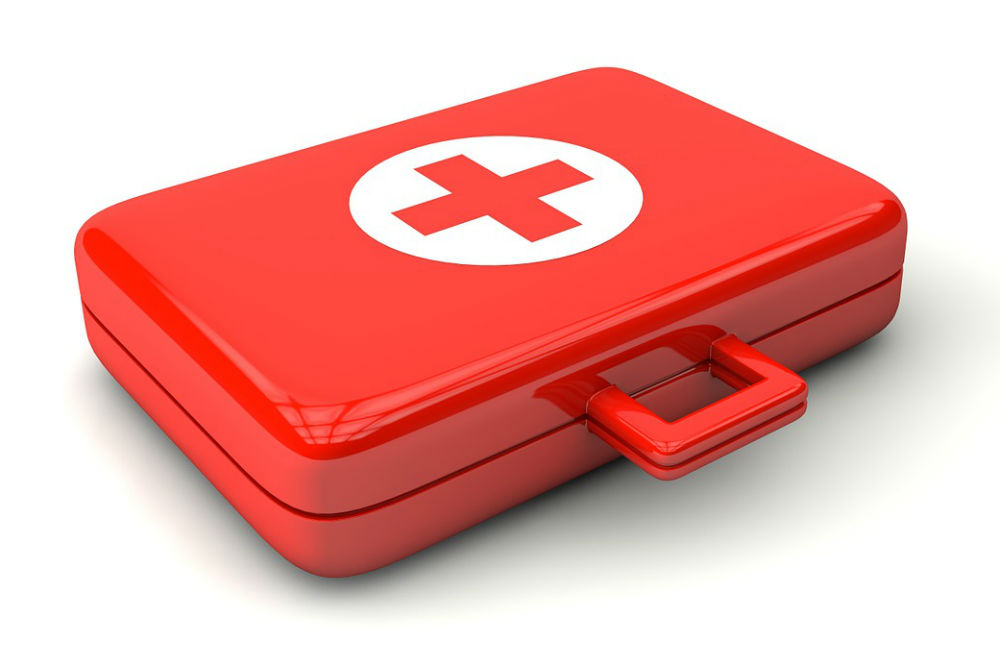
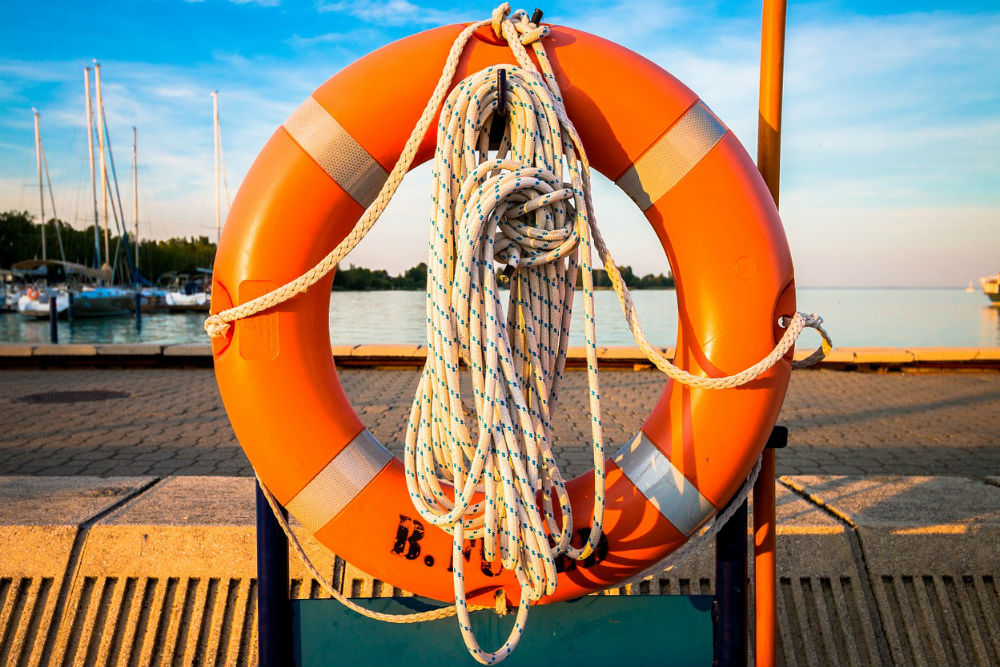
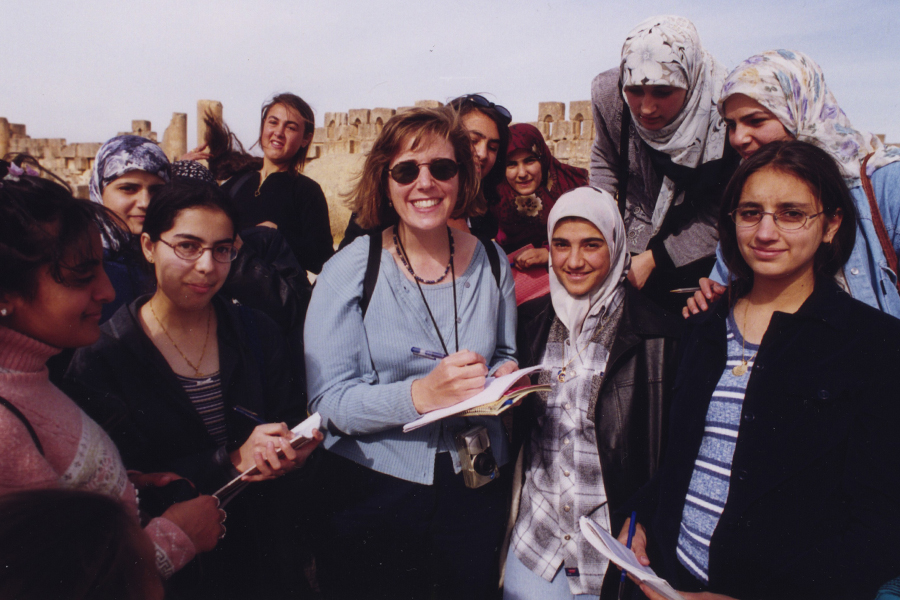




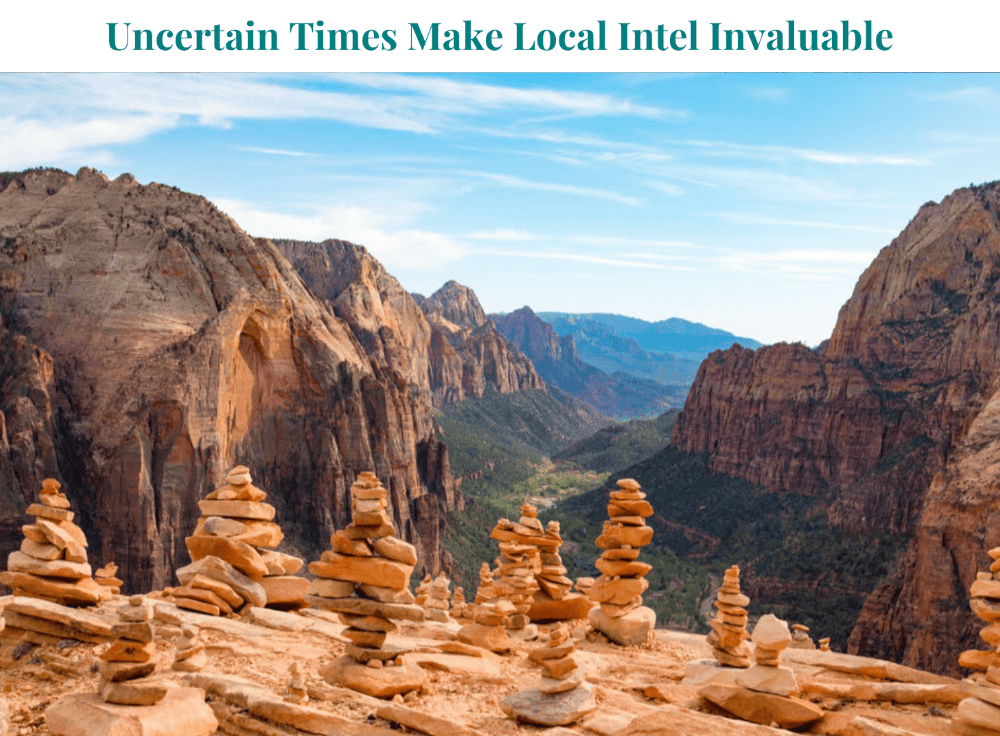


Thank you for your wonderful post! You pointed out some really great key point when it comes to traveling. I struggle to get this point across to my loved one’s just recently when I was getting ready to set off to Paris. I just see it the way you do in terms of terrorism has been happening a lot in our own back yard so it’s not any safer to stay home.
For travel questions for Wendy, please click over to Ask Wendy: https://www.wendyperrin.com/ask-wendy-question/
When it comes to travel and terrorism, fear always exceeds the risk. That’s how they get us. Especially helpful is your advice to not overthink a solution–causing yourself more disruption, and potentially greater exposure to likely harm, injury, or theft.
Hi!
Thanks for writing this article, those were really good and important tips to share.
However, as someone from France, communiting to Paris every day and going through one of the biggest and busiest train stations; I do have to admit I feel really unsafe. Not just me, most of my friends feel the same way. Anyone who has ever lived in Paris will tell you that it does not feel safe most of the time. It probably is compared to other big cities, but it doesn’t feel like it. And since the attacks in November, plus all the ones that came before and after, it feels more unsafe than ever. As you said up there, our home country is not safer than elsewhere; in this case it definitely feels like it’s not! I even recently developed troubles sleeping because of it.
That fear is probably not rightfully justified, it’s proven by many statistics like the ones you gave in your article. But knowing that some people are what we call “fichés S” (meaning they’ve been qualified by the police as being part of radical Islam, and some even with proof of plotting terrorist attacks) and still working at the busiest airport in Europe (CDG), not being arrested and having easy access to planes; or that France knows that over 1,500 young people went to Syria, and almost 300 came back with the idea of planning terrorist attacks; or that the country is very easily accessible from all sides (probably why this is happening, easy target) and more…All of that makes it really hard to be able to travel freely, without worrying about it.
I know I have to fly to Italy in August, and then I’ll be moving permanently to the US in the next few months…I really don’t want to stop travelling because of this, it’s way too important; but I don’t know how I won’t have huge panic attacks on those flights!
Like I said, the chances are small, and the fear, probably not justified; but if you have any tips when in that situation (meaning, reverse as the one in your article)…they are more than welcome :)
Thank you :)
Sonia
Dear Wendy, I just wanted to thank you for this very helpful article which I have shared broadly as it articulates well a message I have been giving to family and friends for years having lived in cities affected by terrorism (Moscow, Beirut, not to mention New York and Denver). In fact, departing Istanbul last night, I arrived at Ataturk airport at exactly the time of attack 24 hours before, a somber, surreal experience. At times like this, it’s important we both grieve for those so unfortunate and to remind ourselves why we all should continue to travel and experience the world, undeterred by irrational emotion and guided by an understanding of real and relative risk. Across an extensive social media network, I was the closest to this tragedy of any friend or friend’s friend that I know of, yet even I was at what an actuary would call zero statistical risk (not impossible per se, but so miniscule as to be pointless to worry about in the face of many other much higher daily risks). One could say 24 hrs is a close call, but even in that short interim, there were tens of thousands of passengers before me (Ataturk int terminal handled 42 mln in 2015, so 115,000 per day or nearly 5,000 per hour, roughly speaking). In a similar event in 2010, two suicide bombers blew themselves up in the Moscow metro station I was planning to be at an hour later (though even then it would’ve been a different part of the station). Many colleagues wrongly stopped taking the metro out of fear, so I drew up calculations indicating it would take such a bombing every couple of weeks over an entire year before the metro would become as dangerous as driving. Thankfully, there were no more. In both cases, avoiding traveling and sticking to cars would’ve been a terrible idea. As would be, you note, ignoring basic things – like forgetting to chew our meat well, not using sunscreen, walking alone in dark areas, or engaging in truly dangerous activities like riding motorcycles, climbing rocks, etc. Finally, let’s not forget the sad story of the Italian woman and her husband who missed their flight (Air France 447) from Brazil in 2009, which crashed into the Pacific with no survivors. Initially considered miraculously lucky, she and her husband took a later flight and decided to drive the rest of the way home to Italy once reaching Europe. She was killed in a car accident before ever getting there.
I used to travel a lot in the past. But now traveling has started to be like Russian roulette.
That means you can never know which will be the next airport paranoid terrorists will attack.
Thanks but no, I don’t want to play Russian roulette. Traveling by car is fine. And yes, there is always a possibility of an accident, but al least you don’t have to be afraid that terrorist will explode you into pieces.
The media bombardment is overwhelming some days. Thank you for helping me take a deep breath.
I’m impressed by the amount of research that went into this article. What really, really frightens is when I sit on a long distance coach (I frequently travel my that means, especially in Turkey) and the driver texts or gabs on his mobile. I’m always tempted to smack it out of his hand..
It is sad because of attacks… We should see the world, not to be in fear of the world. We think that everyone who travel need to be informed but not in fear of attacks. It is never 100% safe… plain can crush, volcano can erupt, but you go :) Think positive and follow your intuition :)
Thank you for a common sense article. It’ s important to keep perspective in times that are uncertain.
It’s also important to recognize that we may live in a place that is more dangerous than the place or places we are visiting. We often only think the place we are visiting is more dangerous because it is a place we are unfamiliar with (unknown language, neighborhood, people…)
I encourage people to travel, enjoy life, stay alert and not give up the things that enrich our lives and broaden our understanding.
Wendy Jaeger
owner, Bliss Travels
I still refer back to your excellent article about “risk and perception” which you wrote shortly after 9/11. So sad that you need to post a similar one again.
Ilene.
Let’s Travel
Hi Wendy, also in Italy che Foreign Ministry suggests that travellers register on http://www.viaggiare sicuri.NET
This is another useful advice. Thanks for the others! See you soon in Bologna maybe!
Sage advice! Its the same caliber of information that my agency shares, that all travelers should be aware.
Its wryly amusing when I hear our foreign inbound travelers were very skeptical to visit Arizona, because of the things happening in the Midwest, or Eastern U.S. Generally, all the travel fears expressed to me, are largely unfounded.
Thanks for this timely post. We will be sharing it with others.
Shawn
East-West Global Travel.
Thank you for the concise reality check article full of horrifying statistics about if and when we might die. All true. Almost every traveler leaves someone behind at home. A story on what those of us left behind can do, or how we can contact loved ones during a terrorist attack would be solid information. My husband and son were in Paris when the terrorists hit. Luckily, they made it to their hotel before the subway shut down and the hotel locked it’s doors. Their access to information was limited to their iPads (thank goodness the hotel had wifi) as the TV stations were all obviously all in French. After contacting me to tell me they were safe and sound, they went to bed. On my end, with the help of CNN and Fox News, I was totally freaking out. Maybe it’s just me. People were calling, texting, and emailing inquiring about their safety. I just repeated what I knew over and over and went on Facebook, Twitter, and email to get information out. Then I found travel.gov (@TravelGov)and found out how important it is to register before you leave on a trip. Also learned about http://www.step.state.gov/step. A free service that allows U.S. citizens/nationals traveling abroad to enroll with the local U.S. Embassy or Consulate. Leaving informed family at home is just as important as being an informed traveler before you depart. Thank you.
Hi Katherine,
So sorry to hear about what you went through, and thanks for the article idea. Please see this advice
https://www.wendyperrin.com/stay-safe-traveling-risky-countries/
that I’ve given many times in the past. You’ll note that Tip #1 under “Take Smart Precautions” is to enroll in STEP.
Wendy